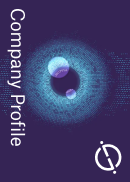

Pharmaceutical companies Moderna and Merck & Co (MSD) have announced positive results from the Phase IIb KEYNOTE-942/mRNA-4157-P201 study of mRNA-4157 (V940) plus Keytruda to treat high-risk melanoma (stage III/IV) following complete resection.
mRNA-4157 is an investigational messenger ribonucleic acid (mRNA) individualised neoantigen therapy (INT).
Access the most comprehensive Company Profiles
on the market, powered by GlobalData. Save hours of research. Gain competitive edge.

Company Profile – free
sample
Your download email will arrive shortly
We are confident about the
unique
quality of our Company Profiles. However, we want you to make the most
beneficial
decision for your business, so we offer a free sample that you can download by
submitting the below form
By GlobalData
<!–
–>
Visit our Privacy Policy for more information about our services, how we may use, process and share your personal data, including information of your rights in respect of your personal data and how you can unsubscribe from future marketing communications. Our services are intended for corporate subscribers and you warrant that the email address submitted is your corporate email address.
The data showed a sustained improvement in recurrence-free survival (RFS) and distant metastasis-free survival (DMFS) following treatment with mRNA-4157 plus KEYTRUDA regimen compared with Keytruda alone.
The open-label, randomised trial enrolled 157 patients who received the combination therapy or Keytruda alone post-surgery.
RFS was the trial’s primary endpoint while secondary endpoints included DMFS and safety.
According to the latest data with a median follow-up of nearly three years, the combination regimen reduced the recurrence or mortality risk by 49% and the risk of developing distant metastasis or death by 62%.
These findings build on earlier analyses and demonstrate a significant benefit across various subgroups, regardless of tumour mutational burden or PD-L1 status.
The exploratory analysis also indicated an overall survival benefit, with a 2.5-year OS rate of 96.0% for the combination therapy versus 90.2% for Keytruda alone.
mRNA-4157 (V940) regimen’s safety profile was in line with initial assessment data, with most adverse events observed to be mild to moderate in severity.
MSD and Moderna continue to collect additional translational findings, with a further 100 subjects being enrolled in the ongoing trial.
Moderna development, therapeutics and oncology head Kyle Holen said: “We are encouraged by the latest results from the KEYNOTE-942/mRNA-4157-P201 study.
“These findings reinforce our commitment to advancing this innovative treatment in collaboration with Merck, and we are dedicated to harnessing mRNA technology to potentially transform cancer therapy and improve patient outcomes.”
In December 2023, the two companies enrolled the first subjects in the Phase III INTerpath-002 study of mRNA-4157 plus Keytruda for non-small cell lung cancer (NSCLC).
mRNA vaccine coverage on Pharmaceutical Technology (Or Clinical Trials Arena) is supported by Trilink. Editorial content is independently produced and follows the highest standards of journalistic integrity. Topic sponsors are not involved in the creation of editorial content.
<!– –>

Sign up for our daily news round-up!
Give your business an edge with our leading industry insights.
- SEO Powered Content & PR Distribution. Get Amplified Today.
- PlatoData.Network Vertical Generative Ai. Empower Yourself. Access Here.
- PlatoAiStream. Web3 Intelligence. Knowledge Amplified. Access Here.
- PlatoESG. Carbon, CleanTech, Energy, Environment, Solar, Waste Management. Access Here.
- PlatoHealth. Biotech and Clinical Trials Intelligence. Access Here.
- Source: https://www.clinicaltrialsarena.com/news/moderna-msd-melanoma-trial/
